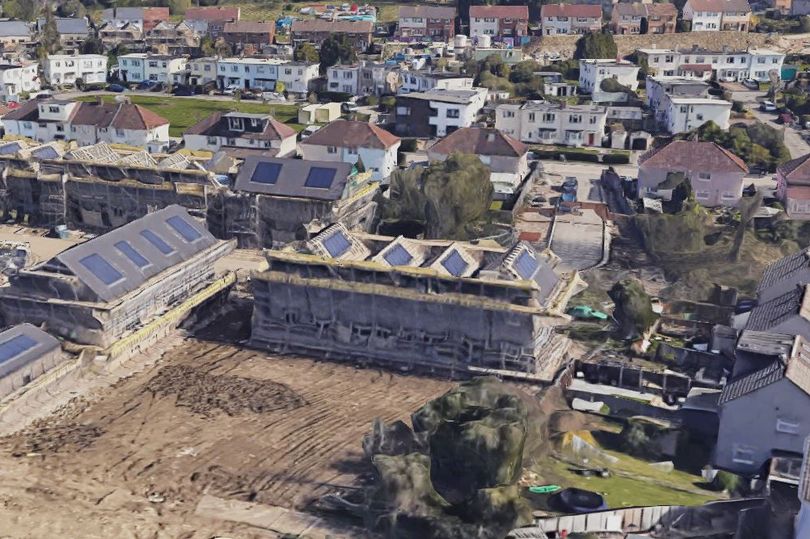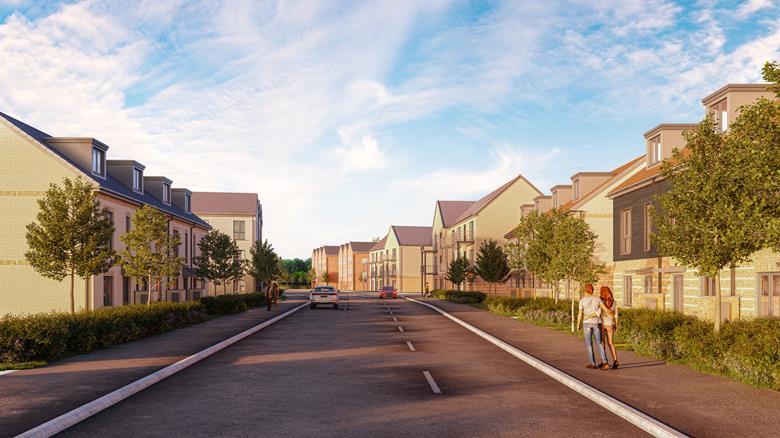By Gary Fleisher
In the quest to address the UK’s deep-rooted housing crisis, the spotlight has increasingly turned toward prefabricated and modular construction methods, known collectively as Modern Methods of Construction (MMC). Touted for its potential to drastically cut construction time and costs, MMC has been heralded as a game-changing solution. Agencies like Homes England have been at the vanguard, pushing for a shift towards these innovative construction techniques with significant investments and policy backing. Yet, the journey has been fraught with hurdles, casting a shadow over the initial optimism and exposing a complex web of challenges that have slowed the progress of prefab and modular housing in the UK.

.
High Hopes Confront Harsh Realities
The allure of prefab and modular housing stems from a compelling vision: the ability to mass-produce homes in controlled factory settings, promising not just speed and efficiency but also a potential reduction in the UK’s chronic housing shortfall. Homes England, tasked with accelerating housing supply, has been a fervent advocate, channeling resources and support towards MMC projects. Despite this enthusiasm, the anticipated revolution in the housing sector has hit several roadblocks.
Battling Perceptions and Ensuring Quality
One of the most significant barriers has been overcoming negative perceptions linked to prefab’s historical legacy — the post-war “quick fix” prefab homes, which were never meant to be permanent solutions. This historical backdrop has led to a lingering skepticism about the durability and quality of contemporary modular constructions. Despite technological advances and improvements in materials, dispelling these doubts remains a formidable challenge.

.
Financial Feasibility and Acceptance in the Market
The economic argument for modular and prefab housing is not as straightforward as it appears. While these methods promise long-term savings, the upfront costs are often substantial, driven by the need for specialized manufacturing facilities and the creation of entirely new supply chains. Moreover, the cautious stance of mortgage lenders and insurers, stemming from uncertainties about resale values and market acceptance, has further complicated the financial landscape for potential homeowners and investors.
Navigating Regulatory Hurdles
Another significant impediment is the UK’s regulatory and planning environment, which has struggled to adapt to the nuances of MMC. The existing frameworks, tailored to traditional construction methods, impose additional complexities on modular housing projects, from securing planning permissions to complying with building regulations. This not only adds to the cost but also delays the adoption of innovative construction techniques.
Homes England’s Struggle with MMC Implementation
Homes England’s experiences serve as a microcosm of the broader challenges facing the adoption of MMC in the UK. Despite its commitment and the allocation of substantial resources, the agency has grappled with scaling prefab and modular housing projects to a meaningful level. Frequent delays, cost overruns, and output shortfalls have led to a recalibration of expectations and strategies.
This has underscored the necessity for a holistic approach that addresses the entire ecosystem surrounding MMC, from supply chain intricacies and workforce training to public awareness and education. There’s also an emerging consensus on the need for regulatory reform to create a more conducive environment for the adoption of these modern construction methods.
Towards a Comprehensive Strategy
The path forward for prefab and modular housing in the UK is not just about technological investment but also about nurturing an ecosystem that supports these innovations. This includes not only addressing logistical and supply chain challenges but also building confidence among consumers and financial institutions. Additionally, regulatory frameworks need to evolve to more effectively support and promote the use of MMC, removing unnecessary barriers and streamlining processes to facilitate development.
Bridging the Innovation-Implementation Gap
The narrative of prefab and modular housing in the UK is a cautionary tale of innovation meeting the complex realities of implementation. While the potential of MMC to significantly contribute to alleviating the housing crisis remains strong, realizing this potential is contingent upon overcoming multifaceted challenges. For Homes England and other key stakeholders, the journey ahead is not merely about technological investment but also about fostering a supportive ecosystem that can fully realize the promise of prefab and modular housing. As the UK continues to navigate its housing needs, the lessons learned from Homes England’s experiences highlight the importance of perseverance, adaptability, and comprehensive policy support to make innovative construction methods a viable and mainstream reality.
.
Gary Fleisher is a renowned blogger and commentator on construction and housing trends, known for his insightful analysis of the industry.



